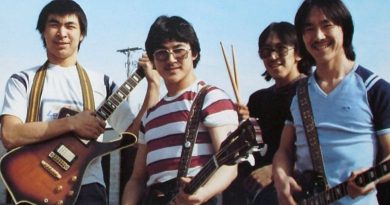BLOG: The exceptionality of Inuit diplomacy

This month marked the 20th anniversary of the passing of the Nunavut Land Claims Agreement Act, the largest land claim in Canadian history, which led to the establishment of the territory of Nunavut. It is the most significant, but far from the only major political achievement that Canadian Inuit have racked up in the past generation. There is no question that Inuit are the most politically successful indigenous group in Canada, probably the world, and that this astuteness has spilled over into circumpolar affairs.
The Inuit Advantage
A number of things account for the Inuit’s political success. The first is their relative peaceful history with Euro-Canadians, at least from a Euro-Canadian perspective. The fur-trade came late to the Arctic, and was minimal, compared with the centuries-long and intense trade that occurred in the vast Canadian sub-Arctic. Treaties were settled in areas where Europeans were hoping to end conflict, settle, and secure economic rights. As such they occurred in northern Canada only in the early 20th century, and barely touched the Inuit homeland, which was not a place many Europeans looked to inhabit. As a result, relations have been much less conflictual between Canada and Inuit than with other Aboriginal groups, with First Nations in particular often looked, and looking, upon Canada with more tension and apprehension. All too-recent histories of Aboriginal-Canadian relations frequently described First Nations as warriors and savages, while Inuit have been viewed primarily with curiosity and a kind of patronizing benevolence. Notwithstanding the displacement of Dorset in the past millennium, Inuit culture is widely viewed as peaceable, and their approach to nation-to-nation relations with the federal government has been qualitatively different from that of First Nations. This was demonstrated most recently with the Idle No More movement, which many Canadian Inuit leaders viewed as a southern/First Nations issue. As Terry Audla, President of ITK, the national Inuit organization covering Nunatsiavut, Nunavik, Nunavut and Inuvialiut, commented,
Inuit are not members of Canada’s “First Nations,” as that term has come to be defined — and our circumstances will require different solutions… We have chosen the route of arbitration, and ultimately litigation, as the method of obtaining justice… As the national Inuit leader, I could be in permanent outrage mode with the Crown… [but] it would be disingenuous to say that Canada is not addressing issues in our communities, and working with Inuit to find solutions… Inuit support the movement, but we’re a pragmatic people.
The other major advantage has been their own political savvy and organization. Knowing when and how to negotiate with a much better resourced and powerful nation, finding arguments that resonated with the broader Canadian public, and having the persistence, over decades, to achieve five modern, comprehensive land claim agreements, can be considered nothing short of astonishing when you consider the population base (~55,000 today, an increase even since land claims negotiations began in the 1970s) and the level of formal education most Inuit involved had obtained. Think about what a political feat it was to have the majority of Canadians view the establishment of Nunavut with pride and overwhelming support, compared to current attitudes regarding aboriginal land rights in the rest of the country, where settlement is often seen as a zero sum game. Inuit have also benefited from strong leadership, with women such as Mary Simon, Sheila-Watt Cloutier and Leona Aglukkaq going on to achieve national and international prominence and influence. All of this is to say that there is no fluke to their success – Inuit have earned all that they have achieved.
The Circumpolar Scene
This has translated into prominence and influence on the circumpolar stage. It would be hard to overstate the importance of Canada’s good relations with Inuit, and the working relationship that they developed with the federal government during the Nunavut negotiations, to the establishment of the Arctic Council and its focus on indigenous participation. Canada led those discussions while Mary Simon was its ambassador for circumpolar relations, ensuring that sustainable development was included along with environmental protection as its primary mandate, and that indigenous organizations were included as Permanent Participants.
The most tangible example of the influence of the Inuit Circumpolar Conference in Arctic relations came with the decision to delay, and then defer, the European Commission application to join the Arctic Council as a permanent (vs. ad hoc) observer. Canada was explicit in identifying the EU ban on seal products as defining in its decision to delay the EU application at the 2009 and 2011 Arctic Council Ministerials, and support of traditional indigenous values and practices – a nod to the seal ban issue – was a major factor in the design of the 2011 criteria for admitting new observers to the Arctic Council (see appendix in SAO Report to Ministers, available here). Finally, in May 2013, a decision was made to conditionally accept the EU pending the resolution of Canada and the EU’s differences of over the seal ban – in my opinion, a face saver and an agreement to disagree, or ignore for now, the issue. The local “No Seal, No Deal” movement may have been influential in preventing an unconditional acceptance of the EU as an observer, but the politics were in play long before that.
The realist in me has to believe that the seal ban issue was something of an excuse for Russia and Canada to exert their prominence in Arctic relations by excluding the EU for as long as was politically feasible. But my liberal side acknowledges that DFAIT, Harper, and above all Aglukkaq, genuinely understood the impact of the seal ban for Inuit and sought to use their power and influence to support them – the Inuit position being, in the Arctic Council, the Canadian position. The seal ban is ridiculous, but one might point out the irony of Inuit criticizing the European Parliament for passing legislation based on European values and culture, rather than scientific evidence and logic. And practically, because observers cannot vote, the EU’s longstanding and now continuing ad hoc participation in the Arctic Council is as effectual as having permanent observer status. But the end result, if nothing else, is a moral victory as Inuit were able to successfully exert their influence in the international stage over the world’s largest economy.
Inuit ≠ Arctic
While applauding the Inuit, we might also briefly consider the consequences of a single indigenous group holding so much influence nationally and regionally – to the detriment of other groups. The field of ‘Inuit Studies’, for example, is popular, relatively well-funded, and holds international appeal. It is inconceivable to imagine the same level of interest in, for example, Dene or Gwich’in Studies. (Sami Studies comes closer, but are limited to Scandinavia). Some Europeans speak of Inuit as though they are the only indigenous group in the Arctic, or worse, the only ones that matter.
At a federal level, the uneven support and accommodation often made to Inuit, and Nunavut in particular, may engender envy and resentment in the other territories, settlement areas, and indigenous homelands. Nunavummiut get a whopping $41,000/pp transfer to support their fledgling territory’s activities, a sum that most band councils could never imagine, and might as well forget. On a recent business trip to Ottawa to brief government officials on a promising new technology in health care and education with significant potential in northern Canada, the first question I was asked was if “it would work in Nunavut.” Never mind that Nunavut itself has less than 3% of Canada’s northern (not territorial) population: Yukon is too white, NWT is too rich, and the provincial north is too south to fit into our national narrative about what the North should look and act like. And take a minute to think about this: there are more Aboriginal people in Winnipeg than there are Inuit in Canada.
None of this is to the discredit of Nunavut and Inuit community and political leaders. As a Canadian, the 20th anniversary of the Nunavut land Claims Settlement is an occasion to applaud and celebrate with Inuit. Their political acumen in leveraging national and international attention and admiration in furtherance of their cultural and social goals is a model that should be replicated across the country, even if their territorial governance is sometimes not.
But let’s also acknowledge that many other indigenous groups deserve the same level of support and influence over issues that affect their well-being. The historic NWT devolution deal for example, signed just last month, barely registered in national and regional circles. My liberal side hopes there are many more Aboriginal achievements to celebrate in the next 20 years; my realist side is skeptical of both the federal government’s and First Nations’ ability to do what the Inuit have been so effective in accomplishing.



